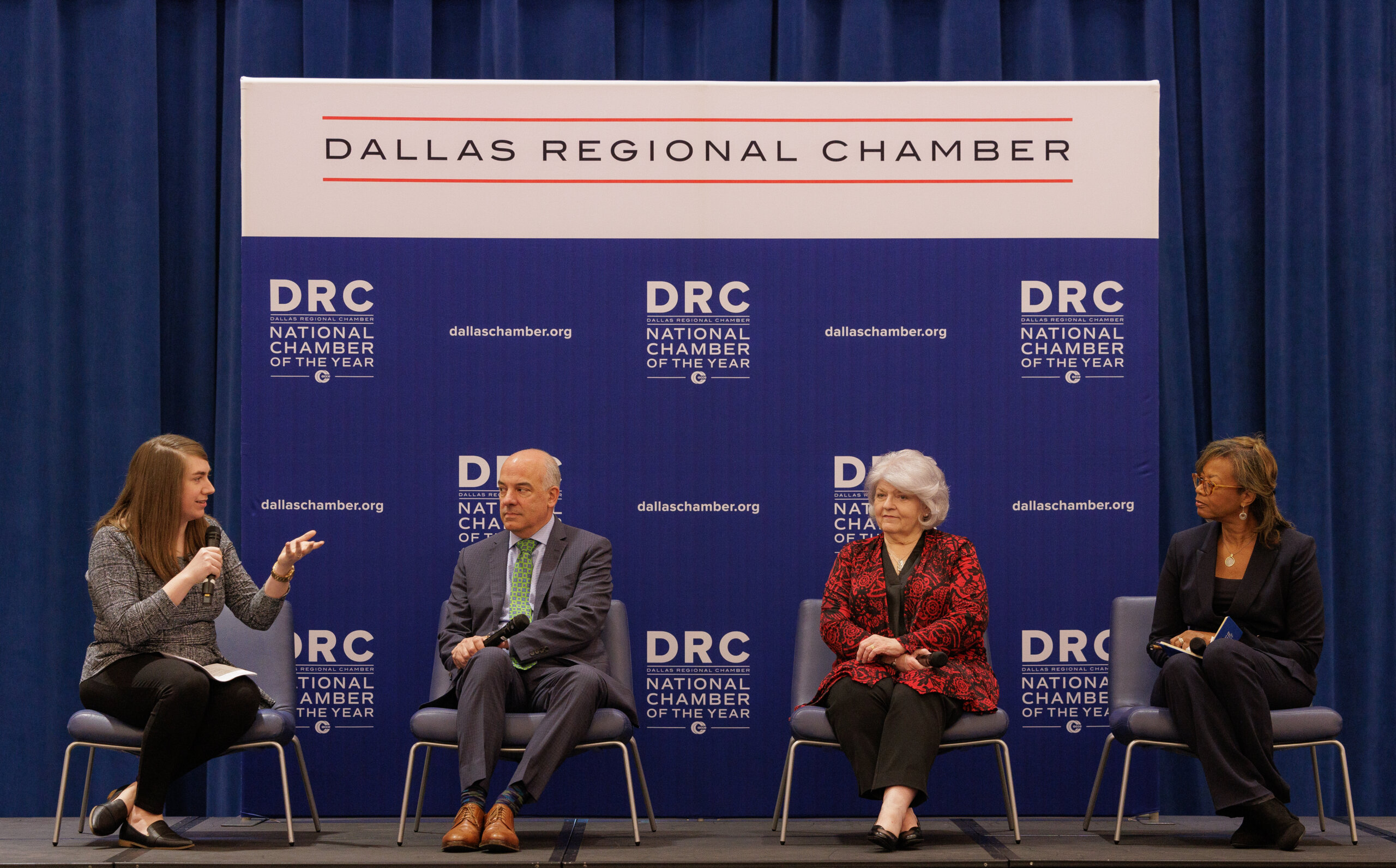By Elizabeth Caudill McClain, Senior Vice President, Talent Strategies

As companies struggle to fill their open positions, promote from within, and retain employees, the Dallas Regional Chamber is working to strengthen the talent pipeline in the most in-demand sectors in the Dallas Region’s labor market. Two key ways to do this are through upskilling and reskilling.
Upskilling is teaching workers new skills to enhance their existing role or advance into a higher-wage role in their field, while reskilling involves teaching workers new skills to transition into a different role or industry.
Together, these strategies have proven to have multifaceted returns on investment for businesses that invest in these programs for their employees.
Here are reasons why companies should consider upskilling and reskilling programs.
1. Increased productivity:
According to a study by the Association for Talent Development, companies that invest in employee training and development experience 24% higher profit margins than those that don’t.
2. Enhanced employee performance:
An IBM report found that organizations with a strong learning culture outperform their peers in employee productivity and innovation.
3. Adaptability to technological changes:
With rapid technological advancements, companies that invest in upskilling are better positioned to adapt to new technologies, increasing their agility and market competitiveness.
4. Innovation and creativity:
A study by PwC found that 44% of employers estimate that a changing need in skillsets will disrupt workers in the next five years. Upskilling and reskilling programs can foster innovation by ensuring employees have the necessary skills to drive creativity and problem-solving within their organization.
5. Cost savings on recruitment:

The cost of employee turnover, recruiting, and onboarding can be high. On average, U.S. businesses lose $1 trillion annually due to voluntary turnover. Investing in existing employees can be a cost-effective strategy, and upskilling can contribute to employee retention and reduce costs related to recruitment.
6. Elevate company brand:
A commitment to employee development can enhance the employer brand, making it more attractive to potential hires. This positive image can contribute to the company’s long-term success.
7. Compliance and risk mitigation:
Upskilling can help employees stay compliant in industries with rapidly changing regulations, reducing the risk of legal issues and penalties.
8. Customer satisfaction:
Well-trained employees are better equipped to meet customer needs, leading to improved customer satisfaction and loyalty.
The Dallas Regional Chamber elevated our commitment to talent strategies with the launch of our 2024-2026 strategic plan, and you can read more about the work ahead of us here.
If you’re interested in setting up upskilling or reskilling programs, I’d be happy to help you. Our Leadership Programs are also a great resource for employee development.